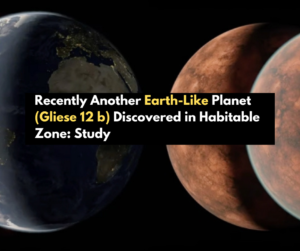
Table of Contents
What If Earth Lost Oxygen for 5 Seconds? A Scientific Explanation
Oxygen is a critical element for life on Earth, but what if the planet lost all its oxygen for just five seconds? It might not sound like a long time, but the consequences would be devastating. In just five seconds, every building on Earth would turn into dust, and life as we know it would be severely impacted. Here’s why.
The Role of Oxygen in Earth’s Atmosphere
Oxygen makes up about 21% of Earth’s atmosphere, and its presence is essential for many processes that support life. From the air we breathe to the structural integrity of objects and buildings, oxygen is everywhere, even where we don’t directly see it.
Most importantly, oxygen is a key element in many chemical bonds that hold materials together, including the concrete, metal, and other building materials used in construction.
Why Buildings Would Turn to Dust Without Oxygen
Buildings, especially those made from concrete and metal, are held together by a variety of chemical bonds, many of which involve oxygen. Without oxygen, these bonds would instantly break apart. Concrete contains calcium carbonate, a material that depends on oxygen molecules. If oxygen were to disappear, the calcium carbonate would disintegrate, leaving buildings to collapse into dust in an instant.
Similarly, metal structures would lose their oxidation layer that protects them from corrosion. This protective layer helps keep metals strong and stable. Without oxygen, metals would weaken and break apart, further contributing to the destruction of infrastructure.
The Devastating Impact on Human Life
The immediate collapse of buildings would not be the only catastrophe. The loss of oxygen would also disrupt air pressure and human biology.
Sudden Drop in Air Pressure
If oxygen were to vanish for five seconds, the air pressure would drop instantly. Oxygen contributes to about 21% of the atmospheric pressure, so its sudden absence would cause a dramatic pressure drop, similar to being at the top of a high-altitude mountain. This would cause humans’ inner ear to rupture, leading to excruciating pain and potential loss of hearing.
Burning Skin and UV Radiation
Without oxygen, there would be no ozone layer. The ozone layer, made of three oxygen molecules (O₃), acts as Earth’s sunscreen by blocking harmful ultraviolet (UV) rays from the sun. In just five seconds, without the protection of the ozone layer, humans would be exposed to severe UV radiation, leading to instant sunburns and increasing the risk of skin cancer.
Impact on Oceans and Water
Oxygen is a part of water (H₂O), making up one-third of its structure. If oxygen were to disappear, water molecules would break down into hydrogen gas, which is highly flammable. This would cause the oceans, rivers, and all other bodies of water to evaporate and rise into the atmosphere, leaving Earth barren and dry.
The Collapse of the Earth’s Crust
Oxygen is also a crucial element in Earth’s crust. Minerals in rocks, soil, and sand contain oxygen as a significant component. If oxygen were to disappear, the Earth’s crust would become unstable, leading to massive geological changes. The ground beneath our feet would crumble, and volcanic eruptions could occur due to the sudden change in pressure beneath the surface.
Fire Would Cease to Exist
While the destruction would be widespread, fires would stop immediately. Fire needs oxygen to burn, so without it, all flames on Earth would be extinguished. While this may sound like a positive outcome, it would do little to mitigate the widespread damage caused by the collapse of buildings and the breakdown of water and air pressure.
Conclusion: Oxygen’s Vital Role in Keeping Earth Stable
The thought experiment of Earth losing its oxygen for just five seconds reveals the critical role oxygen plays in maintaining the structure of our planet. From keeping buildings standing to protecting humans from harmful UV radiation, oxygen is more than just the air we breathe—it’s a building block of our world. While this scenario may seem like science fiction, it underscores the fragile balance that sustains life on Earth.


